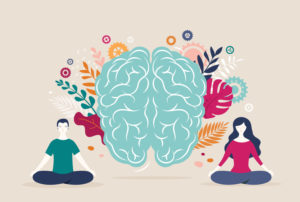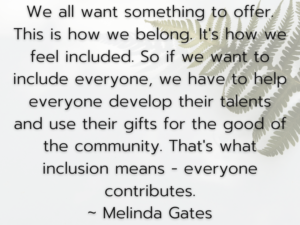Dr. Tiffany Chan, Ed.D., M.A., B.A. Acquiring knowledge by instruction, analysis, and study is the purpose of education. But teaching encompasses much more. Teaching includes the development of critical analysis through writing, as well as through literature. It is about connecting literary works to a range of disciplines such as psychology, history, social justice, and science to name a few. This allows students to respond to classic works of literature, and their own areas of interest,
Statement of Teaching Philosophy
Dr. Tiffany Chan, Ed.D., M.A., B.A.
Acquiring knowledge by instruction, analysis, and study is the purpose of education. But teaching encompasses much more. Teaching includes the development of critical analysis through writing, as well as through literature. It is about connecting literary works to a range of disciplines such as psychology, history, social justice, and science to name a few. This allows students to respond to classic works of literature, and their own areas of interest, in meaningful ways and often sparks a life-long love of learning and promotes curiosity in the world around them. To communicate this view to my students, I practice a subjective approach to composition and literature derived in part from reader response theory and make inclusion, equity, and diversity a priority in the literature studied. My course assignments and classroom activities stress individual thought and the diversity of interpretive processes to assist students in cultivating the cognitive skills necessary for effective interpretation and communication, as well as provoke deep thought about our world and communities.
In my own development as an instructor, my focus on literature has evolved to include elements of social justice because it is my belief that we all have obligations to our fellow human beings, to our students and colleagues, our families, neighbors, and to strangers we will never meet in places we will never go. It is my philosophy that the study of literature, mapping the contours of what it means to be human-our aspirations and anxieties, our histories and hopes-is essential to the growth of a progressive society, which places equality and social justice at the forefront. As humans, we come to know others by the stories they tell, even as we determine who we are by the stories we tell ourselves. It is for these reasons that it is important to the learning process, students must first recognize that what they are studying is of value and importance and form a strong connection to the material both in theory and practical application. Student learners are a diverse group with divergent viewpoints and interests; therefore, I recognize that my role as an educator and leader is to help students recognize the relationships that exist between varying interests and fields of study.
In my work as a scholar, writer, and teacher, I often explore how literature, more than any other discipline, is based in a play of imagination that animates abundant possibilities for alternate social arrangements: atypical societies, different ways of living, utopian intuitions about more equitable, more liberated, and more just forms of social organization. Literature’s diverse inventory of aesthetic forms and strategies can move readers emotionally and recruit us to develop habits of empathy and nuanced thought. Literature can uncover the affective dimension of structures of inequality; its use of language may force readers to re-think moral rhetoric and its relationship to ethical practice; its complexly realized worlds can embody, and thus make knowable and subject to analysis, vast economic and global structures that resist conceptualization based on individual experience. Literature can lead us, as well, to understand traditional social structures from an informed, critical perspective.
The work done as scholars, writers, and teachers has meaning beyond the walls of an institution. Students be encouraged to share the feeling that their work matters. My writing and literature classes challenge students to analyze texts closely while also giving attention to wider cultural and ethical landscapes. Whether a course explores a key social justice issue such as poverty or slavery, whether it focuses on a fundamental skill such as close reading, or it takes students into the community through experiential learning, I urge students to uncover how texts resonate with their evolving experiences of self and of the world around them. Indeed, in this framework, the study of literature emerges an important social practice occurring within a community of thinkers who are similarly engaged in networks of critical, historical, and ethical investigations.
The study of literature, for me, is central to the work of justice in other ways as well, for the literary imagination, as researcher and author Martha Nussbaum writes, provides “an essential ingredient of an ethical stance that asks us to concern ourselves with the good of other people whose lives are distant from our own.” Developing such concern is the necessary first step in determining the roots of injustice; in exposing the conditions and beliefs that perpetuate it; and, finally, in imagining strategies and possibilities for overcoming it. Studying the literature of different people, different places, and different times is therefore crucial to ethical inquiry. For example, listening to the voices of the past not only enables a dynamic understanding of social justice as a concept, but also raises possibilities for social transformation unexplored in the present moment. Reading literature from different historical periods can also reveal how dominant-and often limited-conceptions of justice have powerful roots and discursive legacies: using the tools of literary analysis to uncover the constructed nature of such legacies can challenge their supremacy.
In essence, my goal in teaching has been to help students not only to learn but to think about what they are learning and the larger impact that all literature, writing, and communication has on the world around us, from our families to our communities, and beyond.





